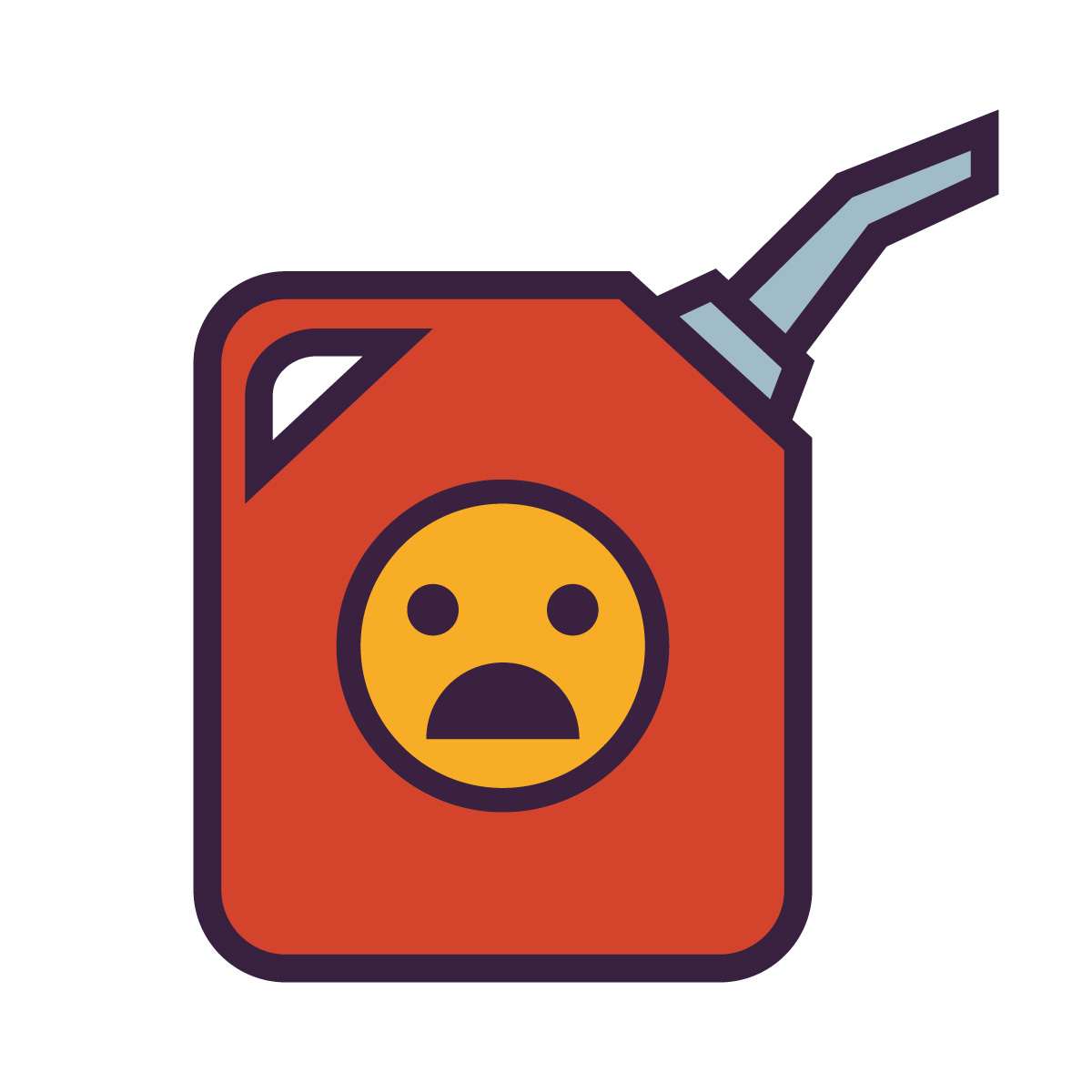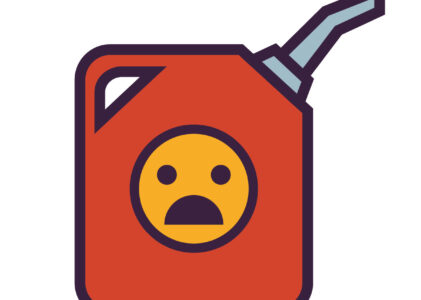Cognitive distortions can fuel anxiety, misery and self-loathing. Oh my!
We all fall into the trap of a cognitive distortion from time-to-time. We might relive an embarrassing moment too many times or feel gripped by an outlandish worst-case scenario on a particularly dark night.
But for some of us, distortions come easily and often. They warp our self-perception and encourage us to feel depressed and anxious.
Read on to learn more about common cognitive distortions and what you can do to fight back.

Illustration by Joseph Moore
What are cognitive distortions?
Cognitive distortions are thinking patterns that aren’t based in reality. They often cause us to see ourselves and the world more negatively.
Some evidence suggests that people may develop cognitive distortions to cope with stressful life events. So, it’s possible that stress might cause us to adapt our thinking for the purpose of immediate survival. However, in the long term, cognitive distortions aren’t healthy or rational.
Top Cognitive Distortions
There are many types of cognitive distortions. These are some of the most common thinking errors related to mental health. Cognitive distortions often overlap and one thought might fall into more than one category.
1. Overgeneralization
My date didn’t go well last night and tonight will be more of the same. I’m terrible at this!
You assume that what happened in one situation predicts what will happen in all other situations. You ignore unique circumstances and tend to view isolated events as inevitable patterns.
Overgeneralizations may encourage you to feel angry and make you more likely to express your anger in destructive ways [1].
2. Catastrophizing
I missed some typos in that report and my boss will probably fire me. No one will hire me without a recommendation, and I’ll end up losing my house…
When you catastrophize, you focus on the worst possible outcome and treat it as if it’s likely, even when it’s not. You make a situation seem much worse than it is.
Catastrophizing is closely linked to anxiety and can be a symptom of Generalized Anxiety Disorder, PTSD, OCD, depression, insomnia and chronic pain [2].
3. Jumping to conclusions
Kate didn’t stop to chat with me when I saw her yesterday. She probably thinks I’m a jerk.
This distortion involves making hasty judgments that aren’t backed up by the facts of a situation. You make a premature decision without gathering enough information or without weighing information sufficiently.
While we all jump to conclusions from time-to-time, people who struggle with issues such as anxiety or paranoia may be more likely to engage in this type of thinking [3].
4. All-or-nothing thinking
I always mess things up!
This type of distortion turns your world into a binary – things are either all good or all bad, with nothing in between. Thinking this way can decrease your motivation (Why bother?) and harm your self-image (I never do anything right!). It may also keep you from looking for solutions to problems.
5. Filtering/focusing on the negative
You receive 10 glowing reviews of your work and one negative review. You can’t stop thinking about the negative one and say to yourself, I’m terrible at this!
As humans, we tend to remember negative events and respond to them more strongly than we do positive events. So, it’s probably easier for you to remember that cutting remark from your great aunt than all the compliments you’ve gotten from other family members.
This tendency likely developed as an evolutionary defense mechanism. However, it may also contribute to mental health issues like anxiety and depression [4].
6. Shoulds
I should have known better! I must eat healthier. I ought to be more efficient.
When you speak to yourself in “should”, “ought”, or “must” statements, a cognitive bias may be at work. These statements often elicit feelings of guilt or shame, and they encourage you to think negatively about your life. What’s more, they’re often rooted in cultural or family expectations that may not fit your needs or values. Thinking this way can contribute to anxiety and poor self-esteem.
7. Personalization and Blame
This one can take a couple different forms.
Form 1
It’s my fault that my daughter struggles to make friends.
You blame yourself for anything that goes wrong, even if it’s not your fault or it’s outside your control. You minimize the complexity of the situation and assume that you are solely responsible for a negative outcome.
Form 2
I hit every red light on the way to work, then I stepped in a puddle in the parking lot, and now I can’t find my key card. The universe hates me!
You assume that you’re being intentionally targeted or excluded. You ascribe meaning to random events.
Like many of these distortions, personalization is associated with higher levels of anxiety and depression.
How to combat cognitive distortions
Identify them
When you notice yourself feeling sad, down or anxious, think about what happened right before you began feeling that way.
- Did someone say or do something?
- Did you have a negative thought in reaction to what they said or did?
- Examine the thoughts that may have triggered your negative feelings. Do they match up with a cognitive distortion?
Reframe them
Cognitive reframing involves changing how you think about a situation. Your thoughts affect your feelings and behavior. Adopting a more positive and realistic perspective can help you think, feel and act in ways that better reflect your values and desires.
After you identify a negative thought. Ask yourself these questions:
1. Is it true? What evidence do I have to support this thought? What evidence do I have to contradict this thought?
2. Are there other explanations?
Seek help
If you struggle with persistent cognitive distortions, cognitive-behavioral therapy (CBT) may help. CBT is a structured form of talk therapy that helps you identify and change unhelpful thinking patterns.
If you’re interested in trying CBT, look for a licensed therapist who has received training in CBT.
Next Steps
If you or someone you love struggles with negative thoughts or other issues related to depression or anxiety, call your doctor or contact Athena Care, for mental health care in Tennessee.
One of our Care Coordinators will help you get the care you need.

Rachel Swan, MS
Editor
Rachel has a Masters of Science in Clinical Psychology from Vanderbilt University, where she spent 16 years as a Research Analyst in the Psychology and Human Development Department.


